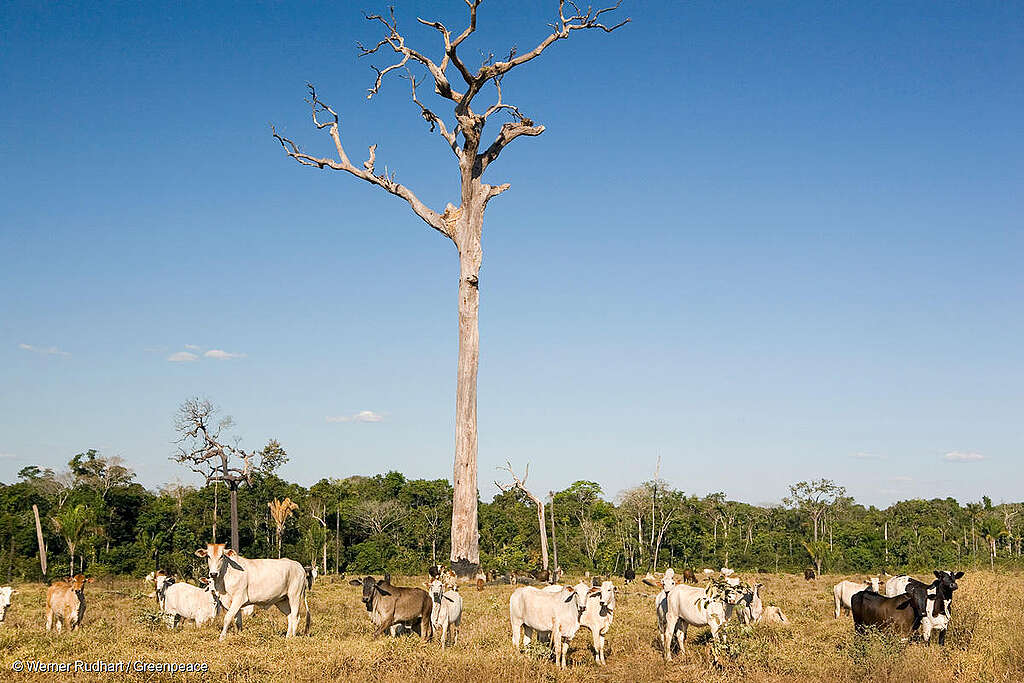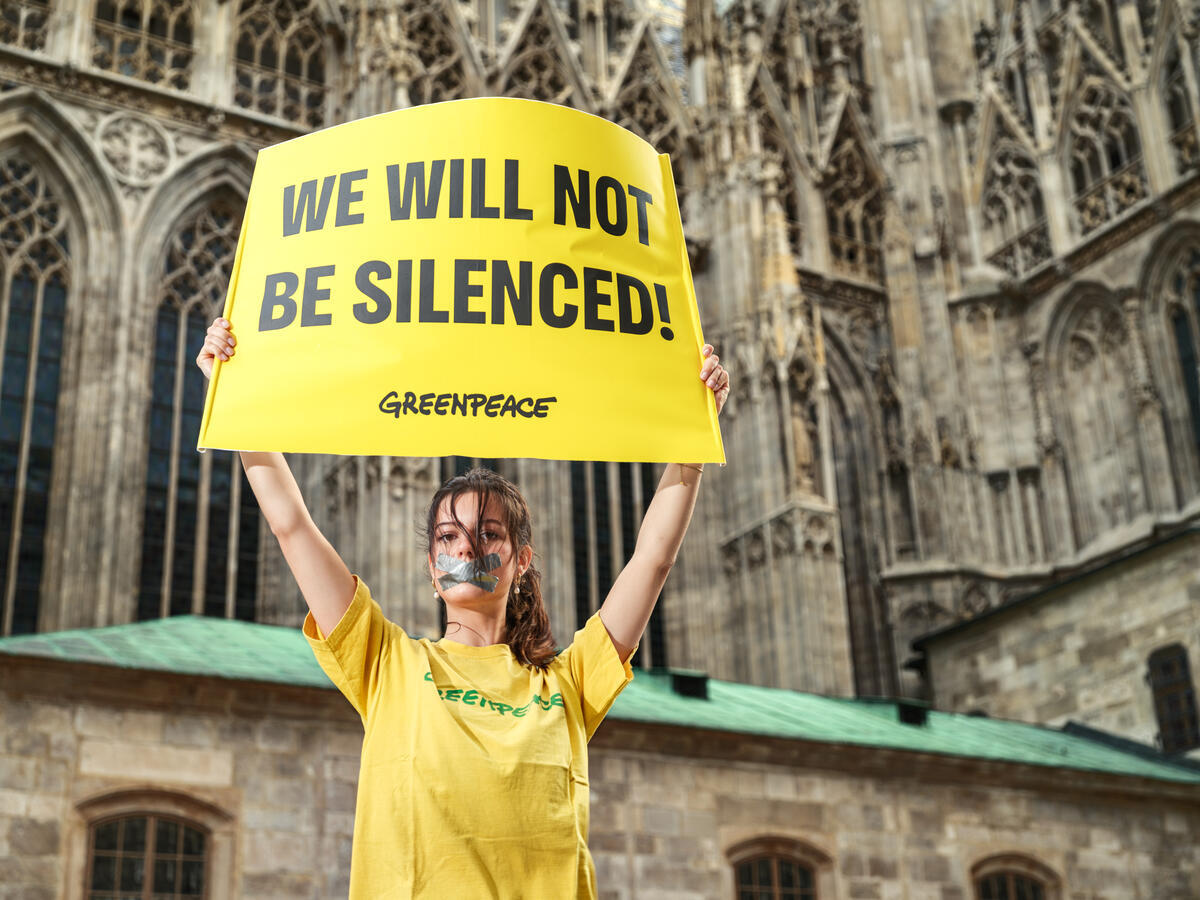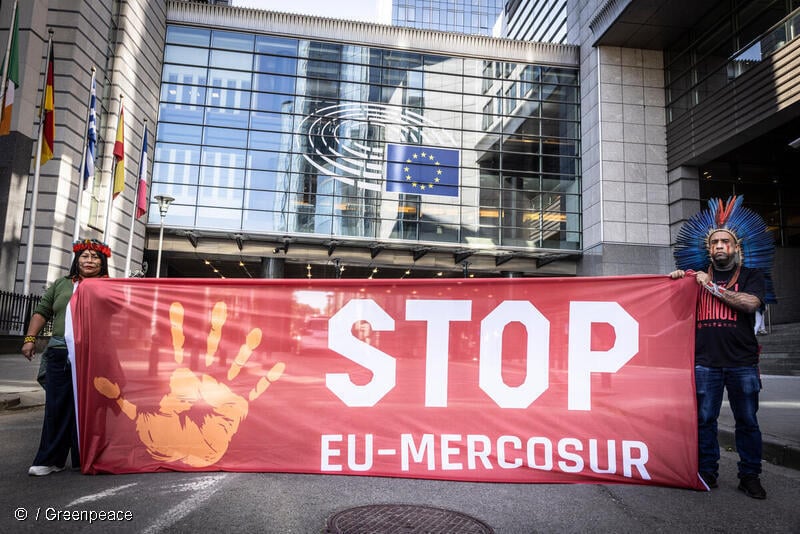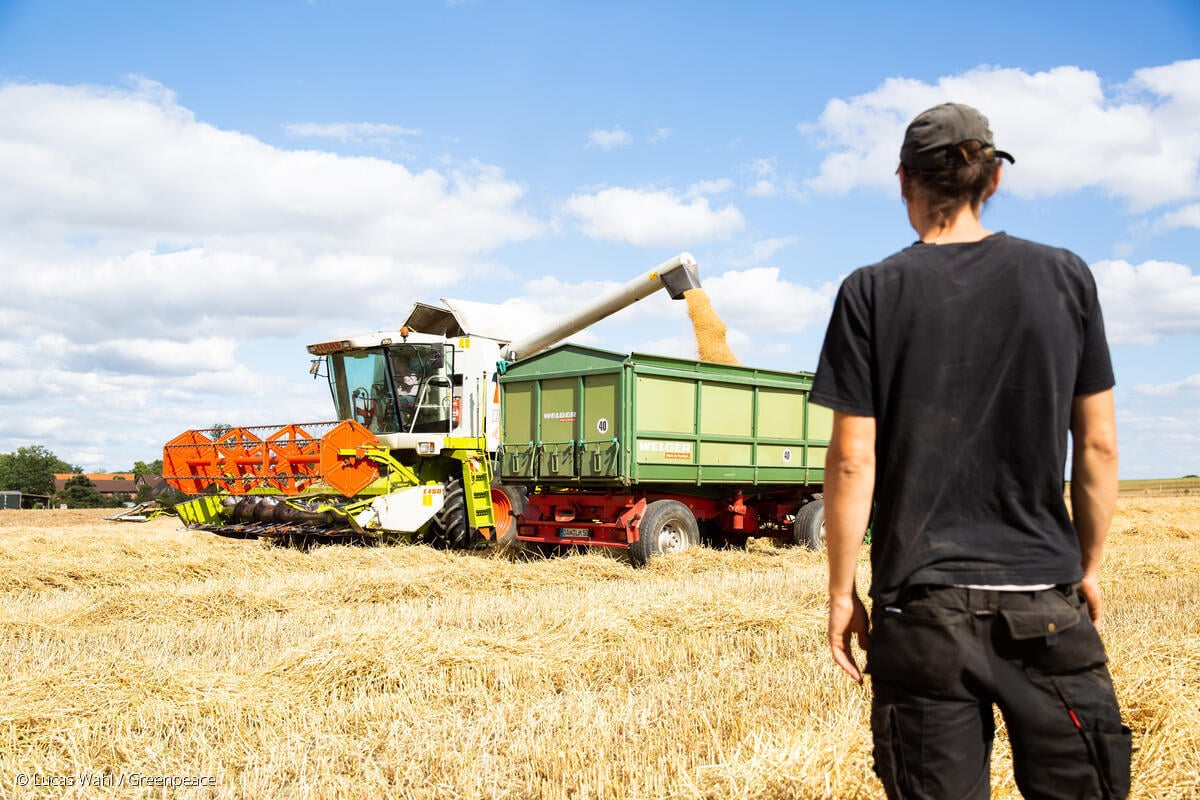
Brussels / Sao Paulo – 25 September 2025 – Beef from cattle illegally raised on protected Indigenous land in the Amazon rainforest may have ended up on the plates of European consumers after entering the supply chains of Brazilian beef giant JBS, a new study by Greenpeace Brasil has revealed.
The investigation links two JBS slaughterhouses in Mato Grosso state to farms owned by Brazilian businessman Mauro Fernando Schaedler. The report alleges that Schaedler moved cattle from a farm where they were raised illegally on Indigenous land to a non-embargoed farm, before selling the cattle to JBS, a practice known as “cattle laundering.”
Both slaughterhouses are approved for exports outside Brazil, and between them they export to a range of countries including Spain, Germany, Italy, the Netherlands, the UK, China and Japan.
Lis Cunha, Greenpeace EU trade campaigner, said: “Many European consumers will be rightly horrified to know that beef served to their families might be linked to the ongoing abuse of the rights of Indigenous Peoples in the Amazon. JBS has pledged for decades to eradicate deforestation and rights abuses from its supply chain, so this case clearly shows it remains unable or unwilling to meet its promises.
“EU leaders will soon vote on whether to approve a trade deal with several Latin American states that will increase the meat trade between the EU and Brazil, benefitting destroyers like JBS at the expense of the Amazon and those who call it home. EU leaders need to stand up and reject this bad trade deal and instead ensure that the EU’s new anti-deforestation law is implemented in full and without any further delays.”
*** In pictures: In September 2025, Greenpeace International installed a fake dung pile under the Wall Street “Charging Bull” statue in protest at JBS’ inclusion in the FTSE-US index fund. ***
Cattle laundering scheme
In 2016, the Brazilian government granted full official protection to Pequizal do Naruvôtu Indigenous territory, which made the raising of cattle there illegal.
Greenpeace Brasil’s report details how since 2018, one of Schaedler’s farms, Fazenda Três Coqueiros II, has transferred cattle that was illegally raised inside the protected Naruvôtu territory to another farm, Fazenda Itapirana, which is outside the protected area.
In that time period, cattle from Itapirana were sold to two JBS slaughterhouses in Mato Grosso state. One of these slaughterhouses purchased cattle from Itapirana as recently as February 2025.
The second slaughterhouse, which is authorised to export meat to the EU, purchased cattle from Itapirana between 2018 and 2021, during the period when cattle were being laundered from Três Coqueiros II to Itapirana.
Greenpeace Italy identified beef from this second slaughterhouse in Italian wholesale markets as recently as July 2025.
In 2023, Três Coqueiros II, the farm which overlaps Naruvôtu land, was fined by Brazil’s environmental agency (IBAMA) for raising cattle without a license inside the protected territory. IBAMA subsequently placed an embargo on Três Coqueiros II, prohibiting the sale of cattle reared on 592 hectares of the property.
EU-Mercosur and the EU deforestation regulation
European governments and lawmakers are currently preparing to decide on whether to approve a trade agreement between the European Union and the Mercosur trade bloc of four South American countries which would greatly expand the amount of beef exported to Europe from the region.
The expansion of pasture for cattle grazing and of cropland to grow animal feed are among the leading causes of deforestation in the Amazon rainforest.
The EU-Mercosur agreement could accelerate this destructive trend and net JBS up to €1.7 billion in pre-tax profits if approved, according to research commissioned by Greenpeace Netherlands.
*** Read our in depth briefing on the EU-Mercosur agreement and the EU deforestation regulation ***
Greenpeace is calling for EU leaders to reject the EU-Mercosur deal, and instead ensure that EU Deforestation Regulation (EUDR) is implemented in full and without further delays.
On 23 September 2025, Environment Commissioner Jessika Roswall announced that she will ask EU governments and the European Parliament to delay the implementation of the EUDR by another year. Greenpeace is calling on EU governments and the European Parliament to reject this delay.
Contacts:
Lis Cunha, Greenpeace EU trade campaigner: +32 471 01 37 08 [email protected]
Greenpeace EU press desk: +32 (0)2 274 1911, [email protected]



